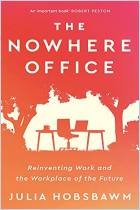
Article
The nefarious new way companies are discriminating against remote workers: time-zone prejudice
Business Insider UK,
2022
Read or listen offline
1×
Recommendation
With the explosive growth in the number of people working remotely during the pandemic, time-zone bias has become a hot issue for some employees. Remote workers report that managers expect them to be responsive around the clock and then overlook them for promotions. Time-zone bias is mostly unintentional from the managerial side, but it can lead to lawsuits against companies and the resignation of high-value talent. Laura Wheatman Hill, writing in the Business Insider, advises managers about what they can do to avoid time-zone bias and its negative consequences.
Take-Aways
About the Author
Laura Wheatman Hill is an Oregon-based freelance writer.
In our Journal
Learners who read this summary also read
Book
Book
Book
Book



















Comment on this summary or Démarrer une discussion
My answer to the problem: "don't take a position where you are a remote worker." Life isn't fair. Deal with it.